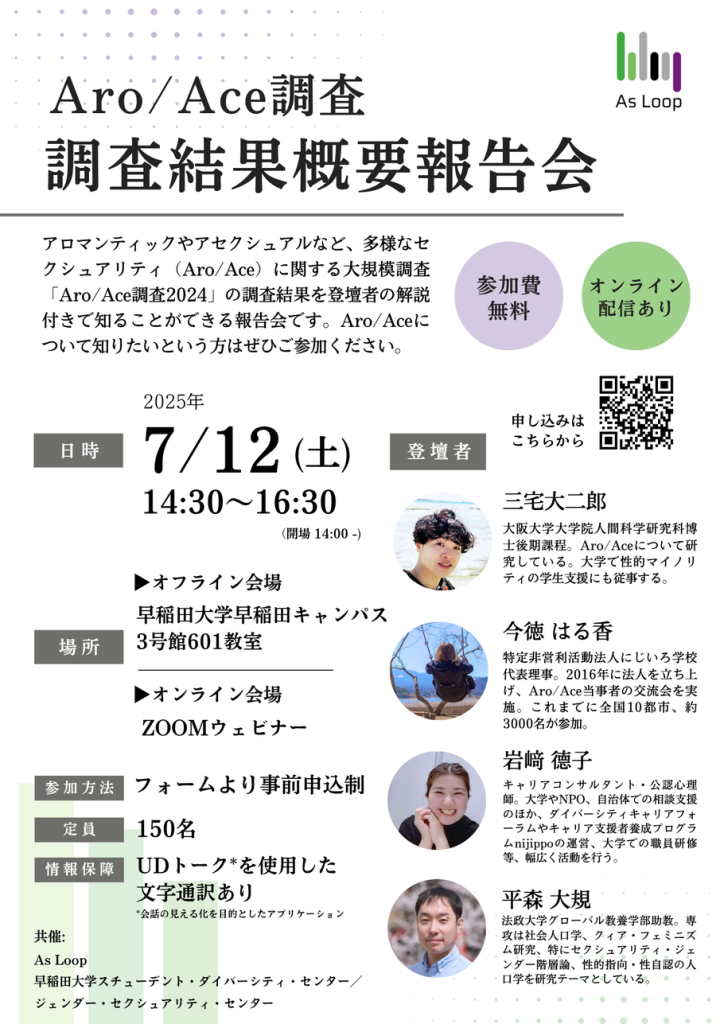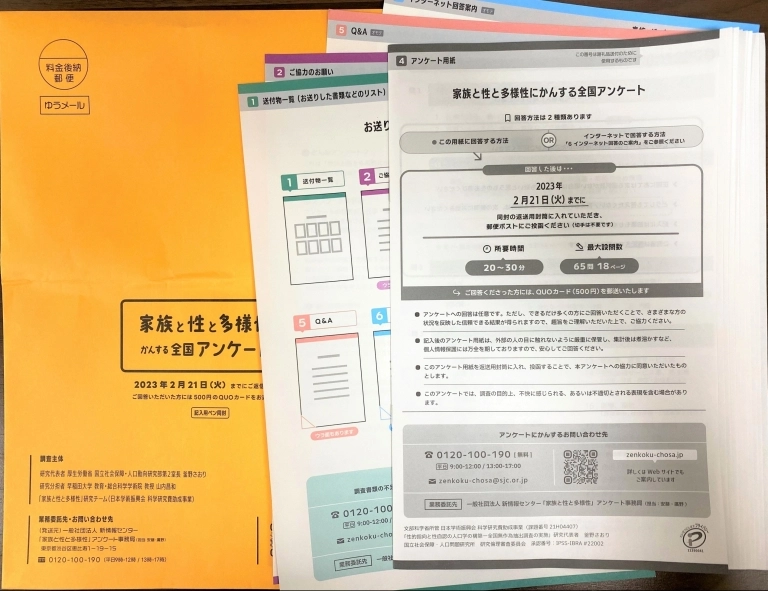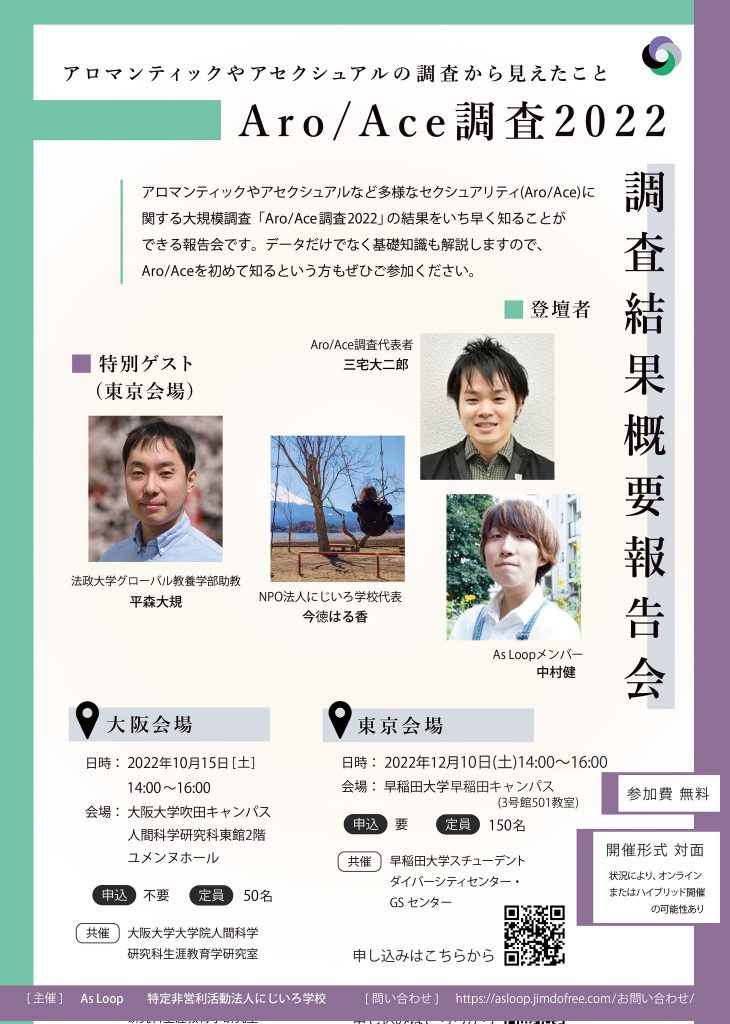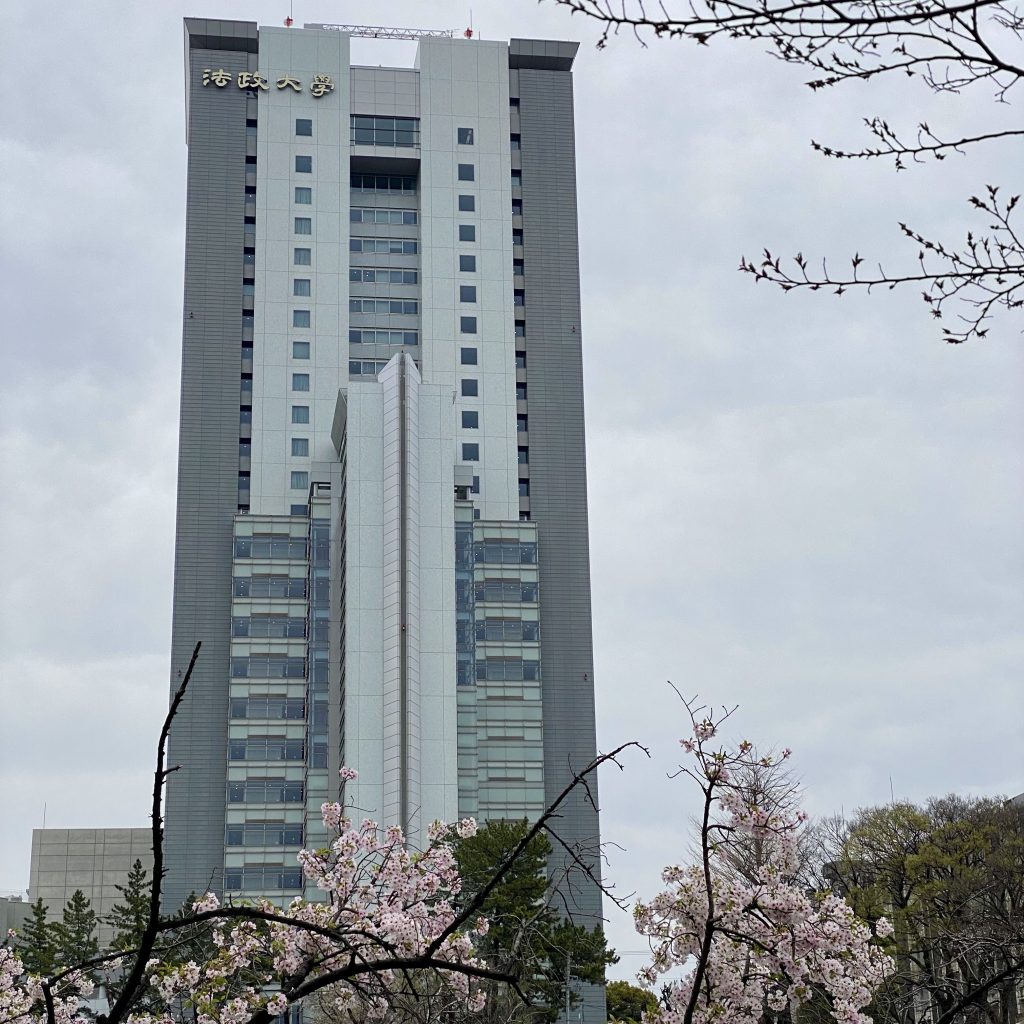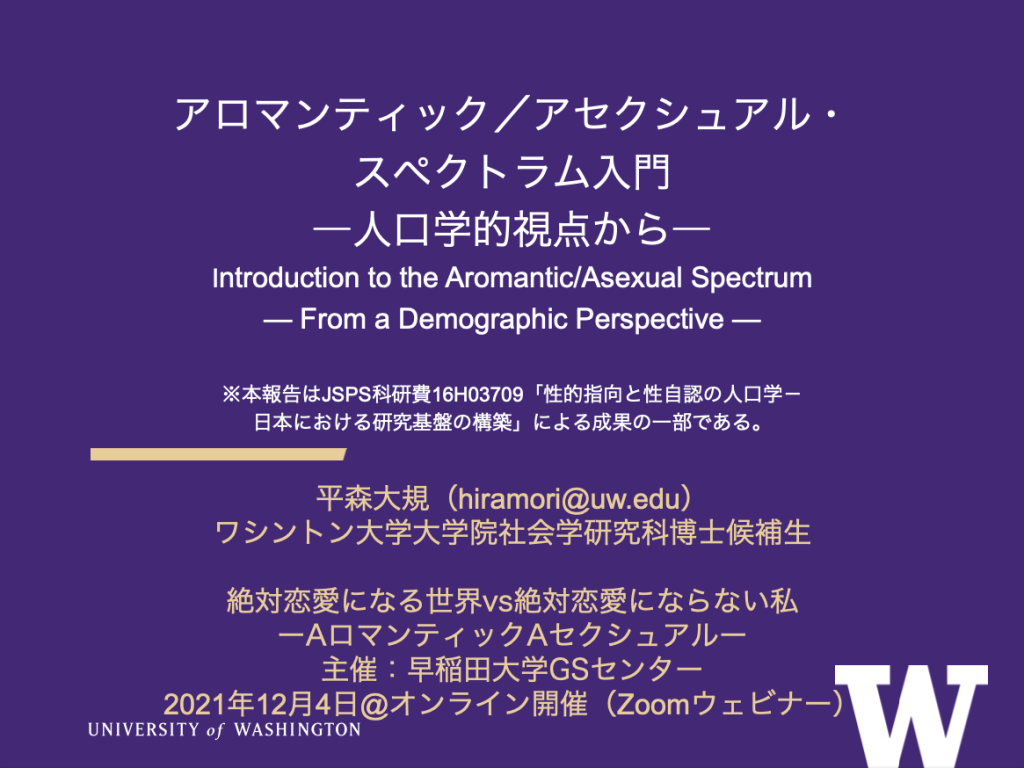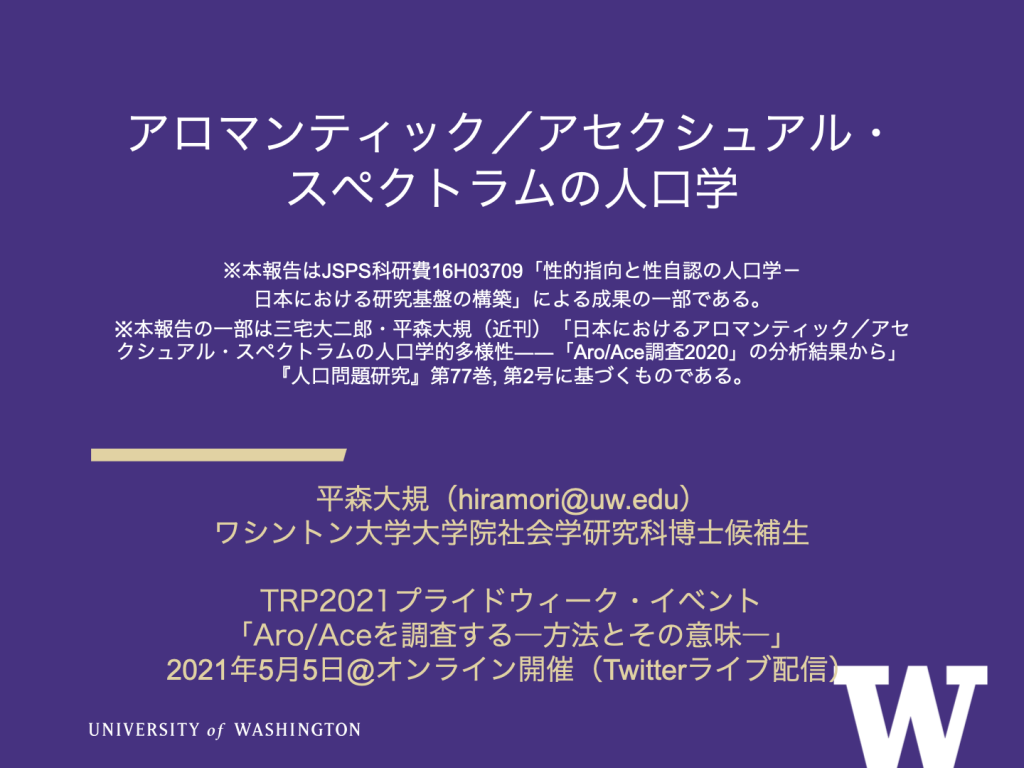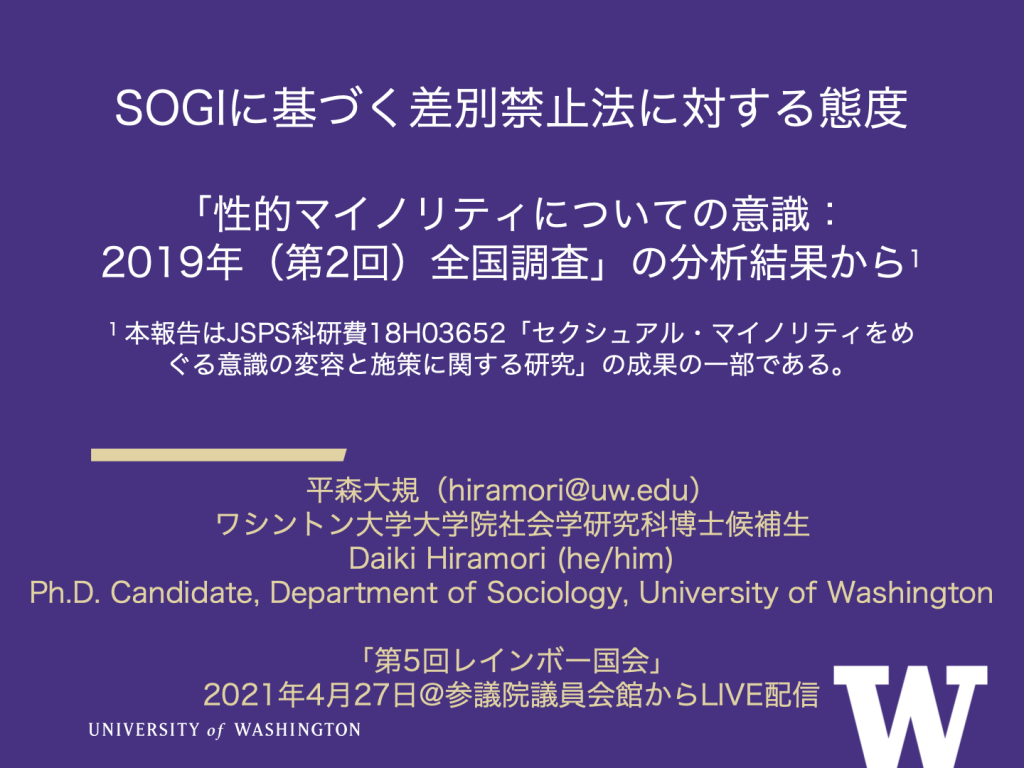2025年7月12日に登壇いたしましたイベント「Aro/Ace調査2024調査結果概要報告会」で人口学の観点から言及した調査研究の詳細情報を以下に掲載しますので、ご参考までにどうぞ!
- 性的マイノリティをテーマとする量的調査の様々な手法について記載している『職場のLGBT⽩書――「やるべき事は、まだまだある〜深刻なハラスメントと変化の兆し〜」アンケート調査 niji VOICE 2018, 2019, 2020 に寄せられた 7,162 名の声から』:⽩書PDF
- 性的マイノリティの人口割合を推定し、性的マイノリティと、そうでない人との生活実態や意識を比較できる全国無作為抽出調査「家族と性と多様性にかんする全国アンケート」におけるアセクシュアル回答者の結果:報告書PDF
- 調査票改善のために回答者が調査票の設問に対してどのような認知プロセスで回答しているのかを探る手法である「認知インタビュー」に関する論文:論文PDF
- さまざまな性的マイノリティに対する意識・態度をたずねている全国無作為抽出調査「性的マイノリティについての意識:2019年(第2回)全国調査」におけるAro/Ace関連項目(恋愛感情を抱かない男女への嫌悪感は資料53、55ページ目、性愛感情を抱かない友人に対する抵抗感は資料70、74ページ目):報告会資料PDF
- 三宅大二郎・平森大規,2021,「日本におけるアロマンティック/アセクシュアル・スペクトラムの人口学的多様性――『Aro/Ace調査2020』の分析結果から」『人口問題研究』77(2): 206-32.
- 三宅大二郎・平森大規,2023,「日本のアロマンティック/アセクシュアル・スペクトラムにおける恋愛的指向の多面性」『ジェンダー&セクシュアリティ』18: 1-25.
- Hiramori, Daiki, and Saori Kamano. 2025. “Understanding Sexual Orientation Identity, Sexual/Romantic Attraction, and Sexual Behavior beyond Western Societies: The Case of Japan.” Pp. 147-63 in Second International Handbook on the Demography of Sexuality, edited by A. K. Baumle, and Z. Oyarvide Tuthill. Cham, Switzerland: Springer.
